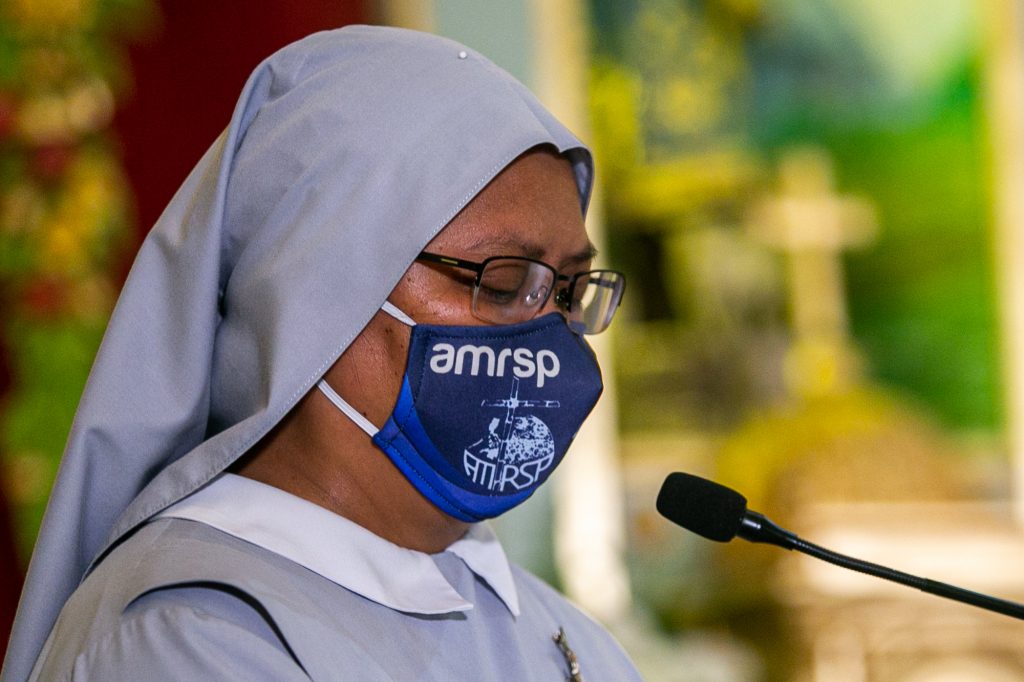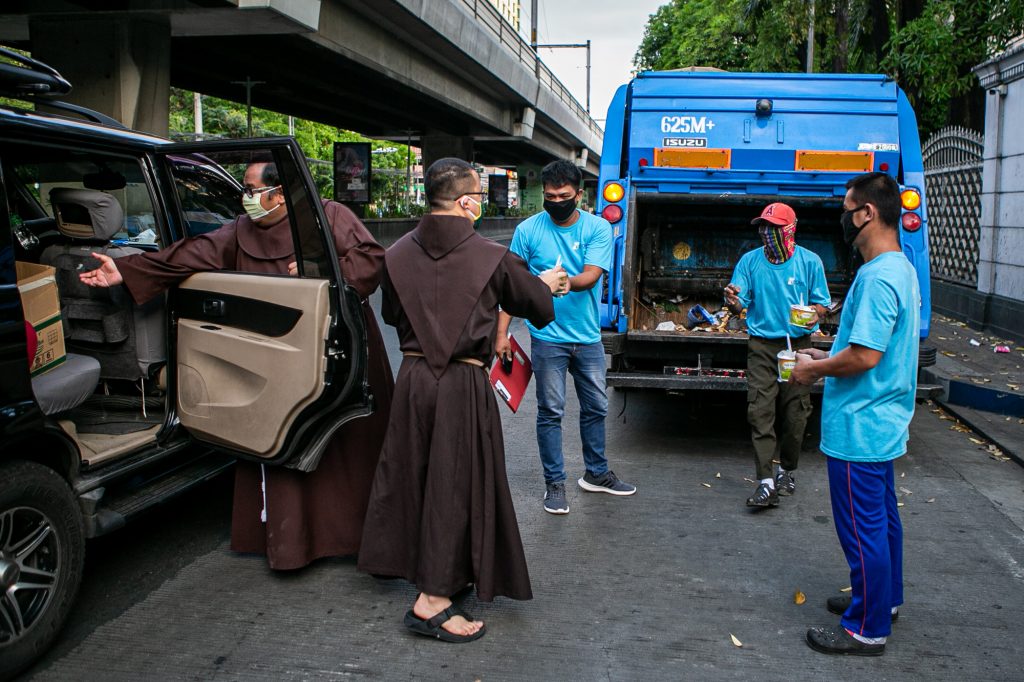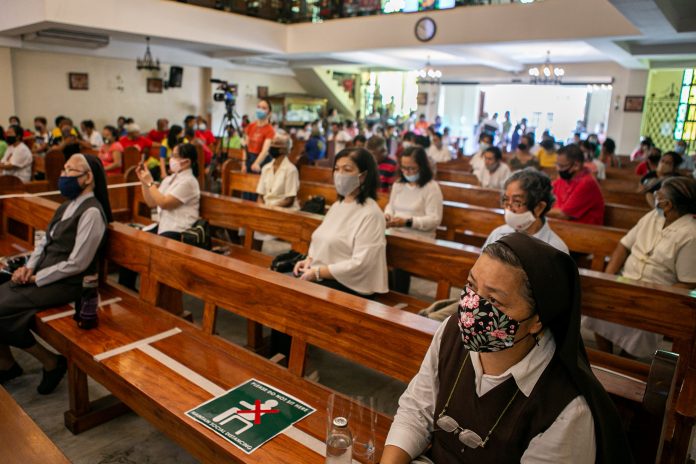Catholic religious congregations in the Philippines underscored the need to be with the people and to be “physically close” with them in the midst of the coronavirus pandemic.
The Association of Major Religious Superiors in the Philippines (AMRSP) said many of its members chose to go “beyond our walls” and to be in the communities.
The religious group met last week to assess it response to two “major catastrophes” in the country this year: the eruption of Taal Volcano in January 2020 and the pandemic.
The meeting, which was held online on October 1 and 2 also discussed the role of the religious as “shepherds” and as “consecrated persons” in the midst of the pandemic.
They reaffirmed the importance of integrating advocacies “not only in prayer” but also in their social action work and pastoral programs.
The religious association said it has “developed and tempered its own creative methods” even as it integrated Christian traditions “to express our demands for good governance.”
The AMRSP said the move is vital to help address “social injustices” and bring the “cry of the poor” to the center of missionary work.
“We identified ourselves with the sufferings and pain in our midst. Sickness and hunger are real. Corruption remains endemic,” read a statement released by the association.
Father Danilo Pilario of the Congregation of Missions said the pandemic has challenged religious men and women “to rethink beyond being cultic leaders or liturgy presiders.”
The priest said the pandemic required church leaders to be as “physically close as possible to their flock who suffer from all kinds of fear, pain, and hunger.”
He said that during the pandemic, religious orders have “to combat fear and indifference” by organizing parishes with new and creative ministries for the “hungry, the sick, and the vulnerable.”

The AMRSP hit the Philippine government’s response to the pandemic, including quarantine protocols, which the association said changed people’s behavior toward each other.
“Social distancing, face masks, lockdowns, different modes of quarantine have brought isolation and, seemingly, apathy into our lives,” noted the religious group.
It added that some Christians and Catholics have even responded to the crisis by looking at the pandemic as “God’s punishment or will.”
The AMRSP, however, said “there are prophets and disciples who have responded with acts of solidarity with the least, last and lost.”
In his message during the meeting, Bishop Pablo Virgilio David of Kalookan, acting president of the Catholic bishops’ conference, also noted that the pandemic “shattered the façade of our egos enamored with images of power and influence, of a hierarchy of honor and dignity.”
The prelate said the Church, with its responses to the crises that hit the country, has proven that “God is not dead, God is not asleep, God is with us.”

He challenged the religious orders to be “more daring in inventing new ministries as needed, and letting old and irrelevant ministries die a natural death.”
“How prepared are we to reach people, albeit virtually? People are hungering, not just for physical but for spiritual food. How do we provide this nourishment in a time of pandemic?” he said.
Bishop David said Catholic congregations must examine how their “restorative justice ministry” deals with how quarantine disadvantaged the poor.
At the end of its two-day meeting, the AMRSP reaffirmed its commitment to building “a synodal Church” that “listens and walks with the least, the last and the lost.”
The association also reaffirmed its recognition of the role of the laity in the life of the faith community by “moving from grand churches to small ecclesial communities.”
It said that the Church needs to be “a Church that directly addresses the growing inequality between the rich and the poor.”









